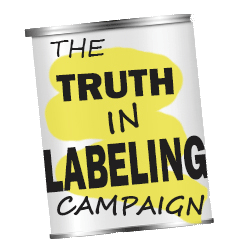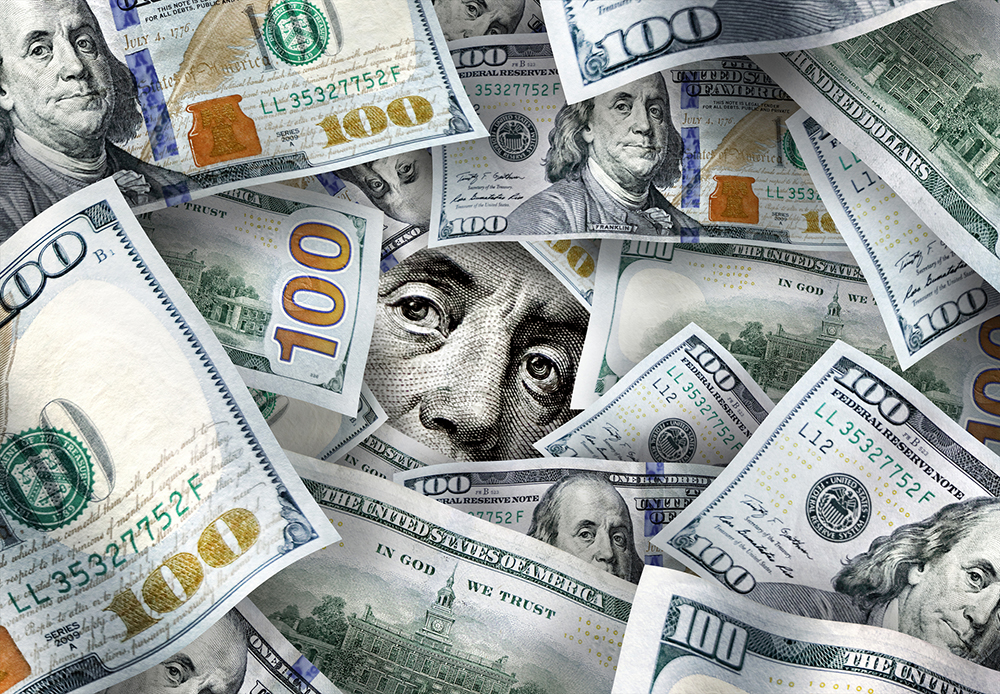Here’s how YOU can make change happen!
How old do you think I am? I used to be five foot tall, but I’m not anymore. I’ve been collecting social security for longer than some of you have been alive. I’ve been actively battling the lie that monosodium glutamate (MSG) is a harmless flavor enhancer since 1968. And in January I stepped up to the plate and filed a Citizen Petition requesting that the FDA strip MSG of its GRAS (generally recognized as safe) status.
Given the history of FDA’s close cooperation with the makers of MSG, it would seem only remotely possible that the FDA would act to provide consumers with accurate information about the toxic potential of MSG. But this is a new day in a new year and a new administration sits in the White House — and all things are possible. So, I’m looking to optimize the possibility that change will happen by contacting newspapers, contacting legislators, and asking you to take 5-10 minutes to post a comment on the Citizen Petition FDA-2021-P-0035 telling of your experience with MSG. We can make change happen. You can make change happen.
To comment, simply go to https://www.regulations.gov/document/FDA-2021-P-0035-0001 and click on the “comment” button at the top left.
Names aren’t required. Want to stay anonymous? You can. Just leave the name field empty. Maybe when you post your comment, mention that you’re a registered voter (if you are a registered voter.)
And please, ask your friends to do the same.
P.S. When the first thousand comments have been posted, I’ll post the secret of my age on the Truth in Labeling Campaign Facebook page.
Adrienne
Don’t forget: https://www.regulations.gov/document/FDA-2021-P-0035-0001 and click on the “comment” button at the top left.
If you have questions or comments, we’d love to hear from you. If you have hints for others on how to avoid exposure to MfG, send them along, too, and we’ll put them up on Facebook. Or you can reach us at questionsaboutmsg@gmail.com and follow us on Twitter @truthlabeling.
Smile: MSG is being outed from within
They tell consumers they’re “natural,” but when “industry experts” are talking to each other, the story changes.
Take what we learned from this outline of a research report on the “savory ingredient industry.”
First off, it’s a big money-maker, valued at 7.2 billion USD this year, and going up and up (savory ingredients include hydrolyzed proteins, yeast extracts and MSG). And industry refers to them as “synthetic flavor enhancers.”
These “synthetic” compounds produced through “chemical processes” (with monosodium glutamate being the “most widely synthesized” one), are said to be cheap and easy to manufacture.
So there you have it. They know that MSG is synthetic, manufactured through a chemical process, but we’re told it’s “natural” or “naturally occurring.” And as you can see that’s nothing more than pure, 100 percent propaganda.
If you have questions or comments, we’d love to hear from you. If you have hints for others on how to avoid exposure to MfG, send them along, too, and we’ll put them up on Facebook. Or you can reach us at questionsaboutmsg@gmail.com and follow us on Twitter @truthlabeling.
If MSG isn’t harmful…
If MSG isn’t harmful, why is it hidden?
If you have questions or comments, we’d love to hear from you. If you have hints for others on how to avoid exposure to MfG, send them along, too, and we’ll put them up on Facebook. Or you can reach us at questionsaboutmsg@gmail.com and follow us on Twitter @truthlabeling.
Who are the ‘Glutes’?
For years, the Truth in Labeling Campaign has been calling them the “Glutes,” a name that many now recognize as being those who make money selling their poisons hidden in food. We gave them a name because we want you to know them and start talking about them, and it’s hard to talk about someone or something if it doesn’t have a name.
The founder and chief operating officer of this loosely knit operation is Ajinomoto, the world’s largest producer of monosodium glutamate. Ajinomoto designs and bankrolls its research, bragging of the millions it’s spending on public relations to “clear MSG’s bad name.” Their goal is to counter the fact that every day more and more people are suffering reactions to MSG and other flavor enhancers that contain MSG’s toxic manufactured free glutamate (MfG) by plastering the world with propaganda that MSG has gotten a bad rap.
Without the researchers who execute their double-blind studies using excitotoxic, brain damaging placebos, without the food technologists who incorporate MfG into thousands of processed foods, without the manufacturers that use MSG in their products so they can skimp on quality — aided by the grocery outlets that sell their products — and without the “public servants” at the FDA who for 50 years have turned their backs on research that clearly demonstrates MSG has toxic potential while endorsing the out and out lie that MSG is safe for use in food, MSG would have long ago been banned. And it can be done. As recently as 2018 the FDA acted to no longer allow the use of seven flavoring substances and flavor enhancers deemed dangerous.
Those are the Glutes: the people who work to keep MSG flowing without mentioning that they work for the producer of MSG when signing off on their work.
If you have questions or comments, we’d love to hear from you. If you have hints for others on how to avoid exposure to MfG, send them along, too, and we’ll put them up on Facebook. Or you can reach us at questionsaboutmsg@gmail.com and follow us on Twitter @truthlabeling.






